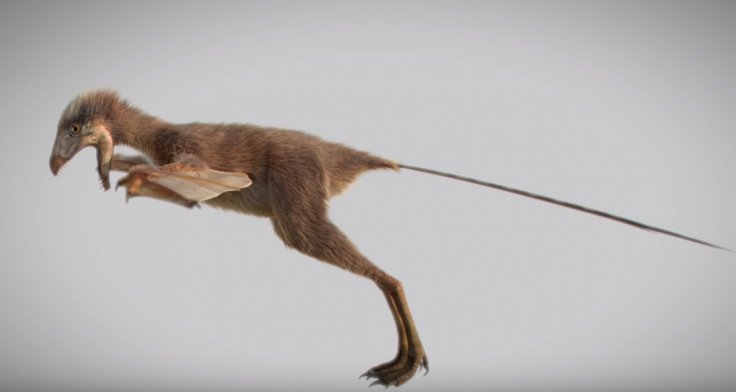
A team of researchers at the Chinese Academy of Sciences has discovered a tiny dinosaur fossil in northeastern China. This little dinosaur also had bat-like wings, and experts believe that it might have flown across the skies during the Jurassic era.
The study report which is now published in the journal Nature reveals that this dinosaur fossil is more than 163 million years old. As per the research report, this new discovery will provide startling clues regarding the evolutionary experimentation that characterized the origin of flying ability in dinosaurs.
Researchers have named this new dinosaur 'ambopteryx longibrachium'. Initial analysis reveals that this tiny dinosaur might have measured just 32 centimeters in length, and it weighed just over 300 grams. The wings of this dinosaur resembled a bat, as its membrane wings are supported by a long rod-like bone. Researchers also revealed that this dinosaur falls in the category of Scansoriopterygidae, a category known for its climbing and gliding capabilities.
"The most exciting thing, for me, is that it shows that some dinosaurs evolved very different structures to become volant," said Min Wang, a paleontologist at the Chinese Academy of Sciences, National Geographic reports.
A few days back, Brian J Ford, a popular biologist who authored the book 'Too Big to Walk: The New Science of Dinosaurs' had put forward a new theory regarding the extinction of dinosaurs. Brian J Ford claimed that it was not the doomsday asteroid, but continental drift had played a crucial role behind dinosaur's extinction.
As per Brian J Ford, dinosaurs had used sex lakes for mating, and as a result of the continental drift, these water bodies became absent. As mating became difficult for dinosaurs, they were wiped out from the surface of the planet in the course of time.
"The giant dinosaurs could only evolve wading in shallow water to take their weight. Once the Earth's surface changed, their environment disappeared ... and so did they. But if the vast shallow lakes had persisted? Dinosaurs would be with us today. And poachers would be hunting them just as they do any other spectacular wildlife," Ford told the Sun.









